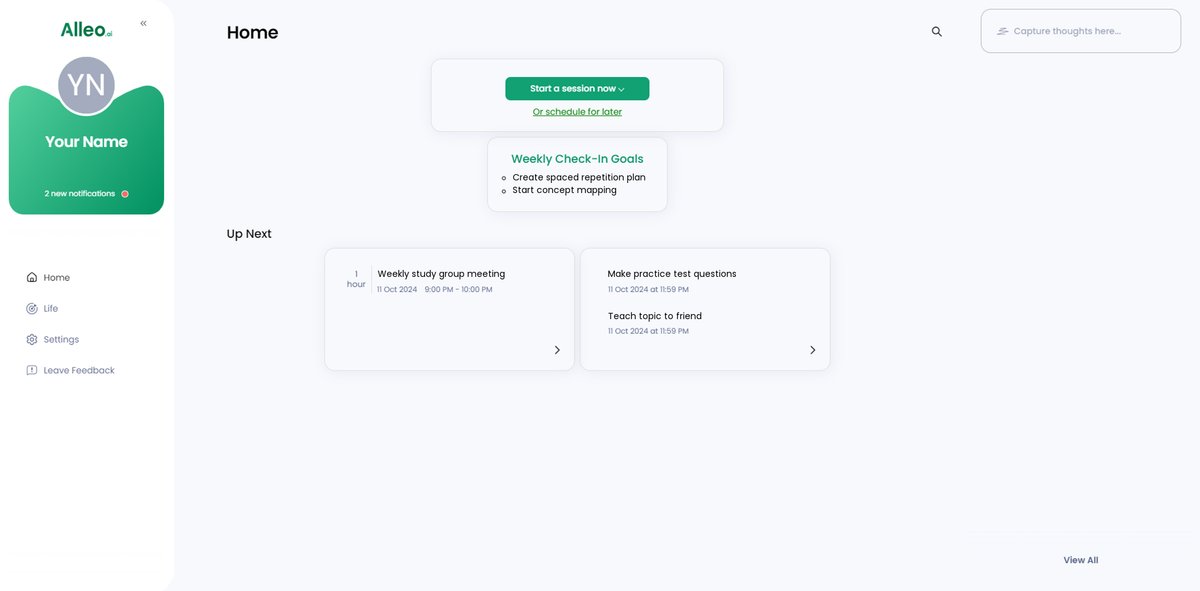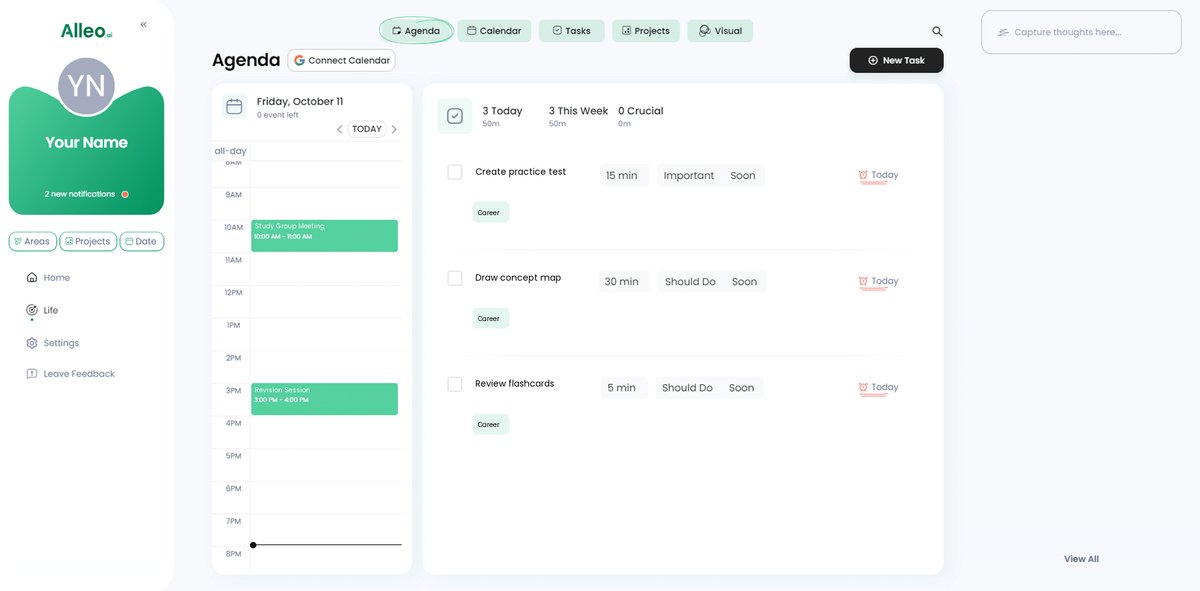Master Effective Study Techniques: Improve Long-Term Retention for College Success
Are you tired of acing your exams only to forget everything soon after? It’s time to improve long-term study retention.
As a life coach, I’ve helped many students navigate these challenges. I often encounter students struggling to retain information beyond short-term memorization, looking for effective active recall methods and spaced repetition techniques.
In this article, I’ll share effective study techniques for improving long-term retention. You’ll learn about spaced repetition, active recall, concept mapping for better understanding, and more. We’ll explore memory mnemonics for students and time management strategies to enhance your learning.
Let’s dive in and discover how to improve long-term study retention.

The Struggle with Long-Term Retention
Many students ace their exams, but forget everything soon after. This is a common issue that I see frequently when helping students improve long-term study retention.
Imagine spending hours studying and then realizing you can’t recall the material when it matters most. It’s frustrating, isn’t it? This is where active recall methods can make a difference.
In my experience, people often find that short-term memorization doesn’t translate into lasting knowledge. This affects not just academic performance but also professional growth. Spaced repetition techniques can help bridge this gap.
Additionally, struggling with long-term retention can make you doubt your abilities. It can be demoralizing, especially when memory mnemonics for students don’t seem to work.
This problem is more common than you might think. Many clients initially struggle with retaining information beyond exams, often due to ineffective time management strategies.
But don’t worry, there are effective strategies to overcome this challenge and improve long-term study retention.

Effective Strategies for Long-Term Retention
Overcoming this challenge requires a few key steps to improve long-term study retention. Here are the main areas to focus on to make progress.
- Implement spaced repetition techniques for regular review: Schedule study sessions at increasing intervals.
- Use active recall methods through practice tests: Create self-quizzes to reinforce knowledge.
- Create concept maps for visual organization: Draw maps to link related concepts visually, enhancing mind mapping for better understanding.
- Apply the Feynman Technique to simplify concepts: Teach concepts in simple terms, similar to elaborative rehearsal for information retention.
- Utilize memory mnemonics for students to retain key information: Use acronyms and visual imagery.
- Engage in collaborative learning and discussions: Join study groups for deeper insights and improved long-term study retention.
- Interleave subjects during study sessions: Mix different subjects to enhance retention, utilizing interleaving practice for improved learning.
Let’s dive in!
1: Implement spaced repetition for regular review
Implementing spaced repetition is essential for improving long-term study retention, especially for complex subjects.
Actionable Steps:
- Set a study schedule: Plan your study sessions with increasing intervals for each topic, utilizing spaced repetition techniques.
- Use spaced repetition apps: Utilize tools like Anki or Quizlet to automate your study schedule and enhance active recall methods.
- Review periodically: Briefly review each topic after one day, one week, and one month to improve long-term study retention.
Explanation: These steps help reinforce knowledge by revisiting material at strategic intervals, supporting time management strategies for effective learning.
This method aligns with the spacing effect, which shows that spaced repetitions improve retention.
By using these techniques, you can ensure that your hard-earned knowledge will stick around longer, enhancing your long-term study retention.
This approach provides a solid foundation for your study routine and prepares you for our next strategy.

2: Use active recall through practice tests
Active recall through practice tests is essential for improving long-term study retention and reinforcing knowledge.
Actionable Steps:
- Create practice tests: Gather past exam questions and create practice tests for each subject, incorporating active recall methods.
- Self-quiz using flashcards: Use flashcards or online quiz platforms to test yourself regularly, implementing spaced repetition techniques.
- Join study groups: Participate in study groups where members quiz each other on various topics, enhancing memory mnemonics for students.
Explanation: These steps help reinforce your learning by actively retrieving information, which strengthens memory and improves long-term study retention.
Engaging with practice tests and quizzes can significantly improve retention through active recall methods.
According to research, using flashcards can lead to a 50% increase in long-term retention.
This approach will set you up for success and prepare you for the next strategy to improve long-term study retention.

3: Create concept maps for visual organization
Creating concept maps for visual organization helps you connect related ideas and improve your long-term study retention, especially for complex subjects.
Actionable Steps:
- Draw concept maps: Start by identifying the main topic and branching out to related subtopics, using mind mapping for better understanding.
- Use online tools: Utilize tools like MindMeister or Lucidchart to create and organize digital concept maps, enhancing concept mapping in college courses.
- Update regularly: Consistently update and review your concept maps to reinforce connections and add new information, incorporating spaced repetition techniques.
Explanation: By visually linking concepts, you can better understand and remember complex topics. This method aligns with the trend of using visual aids to enhance retention and improve long-term study retention.
According to research, students who use visual organization techniques often achieve higher recall performance. Incorporating concept maps into your study routine can significantly boost your long-term retention and support active recall methods.
This visual strategy sets a solid foundation for mastering complex subjects and improving long-term study retention.

4: Apply the Feynman Technique to simplify concepts
Applying the Feynman Technique helps clarify complex topics by breaking them down into simpler terms, which can improve long-term study retention.
Actionable Steps:
- Teach a concept: Explain the topic to a friend or family member as if they know nothing about it, using active recall methods.
- Write in simple language: Write down explanations of complex topics in straightforward and easy-to-understand terms, similar to concept mapping in college courses.
- Identify gaps: Spot any gaps in your understanding and revisit the source material to fill them, employing elaborative rehearsal for information retention.
Explanation: These steps are vital for deepening your understanding of complex subjects. Teaching and simplifying topics help reinforce your knowledge and improve long-term study retention.
This method aligns with active learning trends. According to research, active learning engages students and enhances retention, similar to the benefits of mind mapping for better understanding.
Using the Feynman Technique can boost your long-term retention significantly, complementing other study techniques like spaced repetition.
Key benefits of the Feynman Technique include:
- Improved understanding of complex topics
- Enhanced ability to explain concepts clearly
- Identification of knowledge gaps
This technique complements other study methods and prepares you for further learning strategies, such as the Cornell note-taking system or interleaving practice for improved learning.

5: Utilize mnemonic devices for key information
Utilizing mnemonic devices is vital for remembering key information and can significantly improve long-term study retention, especially in complex subjects.
Actionable Steps:
- Create acronyms: Form acronyms from the first letters of items you need to remember, making them easier to recall. This is one of the effective memory mnemonics for students.
- Use visual imagery: Link information with vivid images to make it more memorable, similar to mind mapping for better understanding.
- Develop stories: Craft short narratives around complex concepts to embed them in your memory, a form of elaborative rehearsal for information retention.
Explanation: These steps enhance memory by creating associations with familiar elements, aiding in active recall methods.
Implementing mnemonic devices can significantly boost retention and improve long-term study retention.
According to research, visual imagery and narratives can improve recall performance. For more details, check out this study techniques guide.
Incorporating mnemonic devices can make studying more effective and enjoyable, complementing other strategies like spaced repetition techniques.
6: Engage in collaborative learning and discussions
Engaging in collaborative learning and discussions is crucial for deepening your understanding and improving long-term study retention.
Actionable Steps:
- Join study groups: Participate in groups that discuss and debate various topics, using active recall methods.
- Attend workshops: Go to seminars or workshops related to your subjects, employing spaced repetition techniques.
- Seek mentoring: Find mentors among peers or professors to get deeper insights and improve long-term study retention.
Explanation: These steps help by exposing you to diverse perspectives and explanations, which can enhance your understanding. Collaborative learning aligns with current trends in education and supports concept mapping in college courses.
According to research, active learning engages students more effectively. This approach can significantly boost your retention and comprehension, especially when combined with elaborative rehearsal for information retention.
Benefits of collaborative learning include:
- Exposure to diverse perspectives
- Enhanced critical thinking skills
- Improved communication abilities
By participating in collaborative learning, you set a strong foundation for mastering complex subjects and improving long-term study retention.

7: Interleave subjects during study sessions
Interleaving subjects during study sessions helps improve cognitive flexibility and long-term study retention.
Actionable Steps:
- Mix subjects: Schedule study blocks for different subjects within the same session to keep your brain engaged and improve long-term study retention.
- Use diverse materials: Incorporate various study resources like videos, books, and articles for each subject during a session, enhancing active recall methods.
Explanation: These steps matter because they help you develop a more adaptable learning approach and improve long-term study retention.
Research shows that interleaved practice enhances recall and problem-solving skills, aligning with spaced repetition techniques.
This method aligns with the trend of using varied learning techniques for better retention, similar to elaborative rehearsal for information retention.
Effective ways to interleave subjects:
- Alternate between related topics, using concept mapping in college courses
- Use different study methods for each subject, such as mind mapping for better understanding
- Review previous material between new topics, incorporating the Cornell note-taking system
Transitioning to this approach can make your study sessions more dynamic and effective, improving long-term study retention.

Partner with Alleo for Better Retention
We’ve explored effective study techniques to improve long-term study retention, but did you know Alleo can make this journey easier?
Set up an account, create a personalized plan, and work with Alleo’s AI coach. The coach will follow up on progress, handle changes, and keep you accountable via notifications, helping you implement active recall methods and spaced repetition techniques.
Ready to get started for free? Let me show you how to boost your study retention!
Step 1: Logging in or Creating an Account
To begin your journey towards better retention, log in to your existing Alleo account or create a new one if you’re a first-time user.

Step 2: Choose “Building better habits and routines”
Click on “Building better habits and routines” to focus on creating consistent study practices that will enhance your long-term retention, aligning perfectly with the effective strategies discussed in the article.

Step 3: Select “Career” as Your Focus Area
Choose “Career” as your primary focus area to enhance your long-term retention skills, which are crucial for academic success and professional growth in your future career.

Step 4: Starting a coaching session
Begin your journey with Alleo by scheduling an intake session, where you’ll discuss your study goals and create a personalized plan to enhance your long-term retention strategies.

Step 5: Viewing and managing goals after the session
After your coaching session, open the Alleo app and check your home page to see the goals you discussed, allowing you to easily track and manage your progress towards better long-term retention.

Step 6: Adding events to your calendar or app
Use Alleo’s calendar and task features to schedule your study sessions, set reminders for spaced repetition, and track your progress in implementing the retention strategies discussed in this article.

Bringing It All Together: Your Path to Better Retention
You’ve learned various methods to improve long-term study retention. Implementing these techniques can transform your study habits and academic performance.
Remember, it’s about consistent effort and smart strategies.
By focusing on spaced repetition techniques, active recall methods, and visual aids like mind mapping for better understanding, you can ensure that your hard work pays off.
Don’t forget to collaborate with peers and use memory mnemonics for students. These approaches will reinforce your learning.
Lastly, interleaving practice for improved learning keeps your brain engaged and flexible.
Take action now. Start applying these techniques today.
With Alleo, you can customize your study plan and track progress effectively. Let Alleo support your journey to academic success.
Ready to improve your long-term study retention? Download Alleo for free and get started!